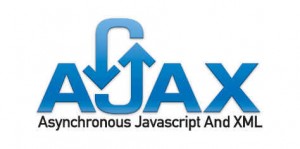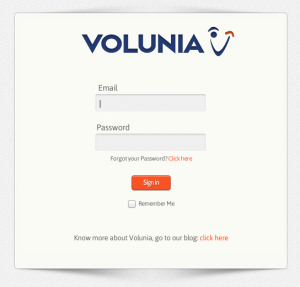Unlike fungible tokens, such as many cryptocurrencies, non-fungible tokens (NFTs) are unique units of non-interchangeable data that can be used to represent virtually any digital asset. NFTs were made possible by the introduction of inheritable smart contracts on the Ethereum network, which allowed for tracking and transfer of ownership of a digital or physical asset.
The benefit of using the blockchain for storage of this digital data is that individuals and companies can utilise the blockchain from anywhere in the world to reliably verify the ownership of the asset, which was not previously possible.
Recently, the NFT space has exploded, with digital artwork pieces changing hands for up to $69 million; it is clear to see that the demand for NFTs is not going away any time soon.
Digital artwork is just one of the first areas that NFTs are set to transform, and their impact is now branching out into areas such as gaming, audio and more traditional areas of supply chain logistics.
Using NFTs to enable financial transactions
Due to the flexibility in the technology, it is becoming an area of interest for a number of vertically integrated sectors, and Financial Services is no exception. This technology could be utilised across the whole back-office functions within a corporate; however, the one worth exploring in more depth is the issue of identity verification.
Very little has changed, over the years, with respect to Know Your Customer (KYC) checks and onboarding of new clients, especially within the financial services sector. Since the introduction of the Money Laundering Regulations 2007, the UK has focussed on limiting the facilitation of money laundering to stamp out organised crime. As part of this legislation, and the more recent Money Laundering, Terrorist Financing and Transfer of Funds (Information on the Payer) Regulations 2017 and various amendments, companies are required to maintain compliance through adequate due diligence to verify the identity of a customer’s beneficial owners of businesses, and identify a customer’s source of funds.
NFTs possess all the required properties to re-engineer existing processes of verifying identities: tamperproof digital certificates could be stored on the blockchain. Due to the immutable nature of the blockchain, the financial services industry could, in theory, design a solution that is referenced by all participants, to remove the necessity of requesting proof of identity as part of the KYC process.
Additionally, it is important to note that only public certificates need to be stored on the blockchain, and all private identifiable information can remain confidential. Not only would this improve the efficacy of the KYC process, but it will also prevent skirting of the anti-money laundering (AML) legislation, and deliver additional reliability and proof of identification.
For years, verifying the identity of an individual customer and the ultimate beneficial owner for corporate customers, has been a firm’s principal goal when undertaking customer due diligence (CDD). When individuals would have to walk into a bank’s branch to open an account, verifying such an identity was fairly straightforward. Such verification allows a firm to complete the necessary checks on said individual(s), to ensure they are not a criminal, as well as identify the nature and intended purpose of the business relationship and expected account activity. Such controls then allow a firm to monitor transactions, ensuring it is easier to identify unusual and potentially suspicious transactions. With the evolution of the internet, more and more individuals can open an account on their laptop, or even their phone, allowing criminals to fraudulently open accounts undetected, and launder their proceeds of crime, making verification of identity and source of funds more difficult for firms.
Since the inception of cryptocurrencies, governments and regulatory bodies have been wary of the confidentiality that the transactions can bring. Such transactions have allowed criminals to buy and sell illicit goods and services on the dark web, as well as launder the proceeds of crime. Criminals hide behind the limited traceability of identity verification and source of funds, damaging the positives that cryptocurrencies can bring to the financial services market. Consequently, by creating digital certificates, which cannot be tampered with on the blockchain, firms can be more confident of the source and ownership of funds, as these can be traced back to an individual whose identity has been verified, so the due diligence can then be conducted on the true individual.
 Installare OwnCloud 4.5 su uno spazio AlterVista
Installare OwnCloud 4.5 su uno spazio AlterVista
 Mettere i dati nella nuvola è il trend del momento. Perché occupare lo spazio del proprio hard disk quando si possono utilizzare degli spazi di archiviazione in rete che in più hanno anche il vantaggio di essere accessibili da qualsiasi dispositivo e da qualsiasi punto del pianeta? Apparentemente la cosa ha solo vantaggi, ma avete mai letto le licenze di questi servizi? Siete sicuri che i file che avete caricato rimangano totalmente di vostra proprietà? Se non lo siete potete usare OwnCloud, il CMS che permette di creare la vostra nuvola personale, da installare sul proprio server web e quindi, volendo, sul vostro spazio AlterVista. E questa è la guida passo passo per installare OwnCloud sul vostro spazio! Continua a leggere »
Mettere i dati nella nuvola è il trend del momento. Perché occupare lo spazio del proprio hard disk quando si possono utilizzare degli spazi di archiviazione in rete che in più hanno anche il vantaggio di essere accessibili da qualsiasi dispositivo e da qualsiasi punto del pianeta? Apparentemente la cosa ha solo vantaggi, ma avete mai letto le licenze di questi servizi? Siete sicuri che i file che avete caricato rimangano totalmente di vostra proprietà? Se non lo siete potete usare OwnCloud, il CMS che permette di creare la vostra nuvola personale, da installare sul proprio server web e quindi, volendo, sul vostro spazio AlterVista. E questa è la guida passo passo per installare OwnCloud sul vostro spazio! Continua a leggere »







